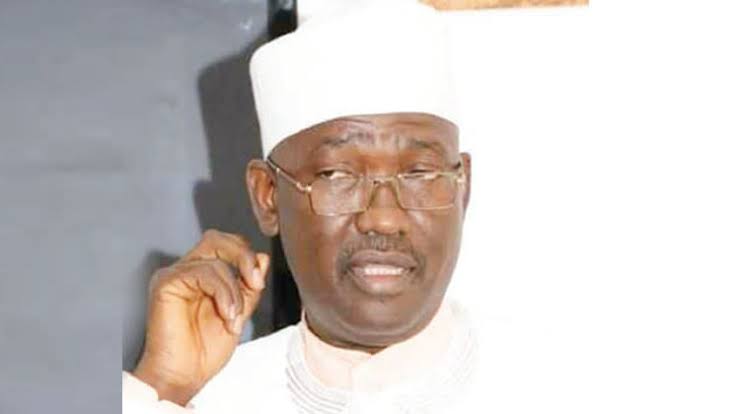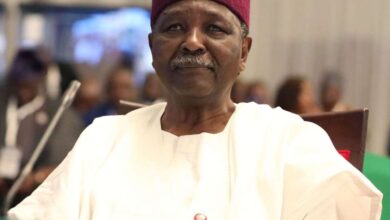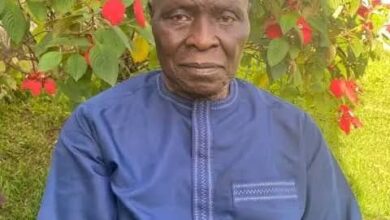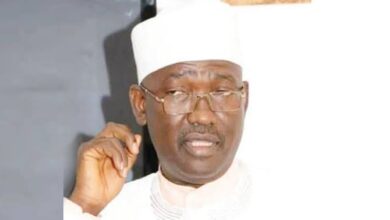WHEN POWER BECOMES PUNISHMENT: THE TRAGEDY OF ALÁDÉ’S KWARA

By Wahab Oba
It was meant to be a solemn moment, a prayer for the dead, a remembrance of a life well lived and lost. A time for reflection on our fleeting mortality and the impermanence of power. But once again, Aládé turned it into a theatre of ego and insensitivity.
At the Fidau prayer held at Ile Bayero, where the respected Sheikh Lukman Isalekoto relayed a message of peace from the Chief Imam of Ilorin, Sheikh Muhammad Bashir, the plea was simple: reconcile two illustrious sons of the Emirate for the sake of unity. But Aládé would have none of it. Instead of sobriety, he opted for provocation. His conduct, seen by many as a slight on the Ulamas, was also perceived as a veiled insult on the traditional leadership of the Emirate.
This is not new. Aládé’s attitude toward tradition and religious institutions has long drawn concern. Reports abound of ignored emissaries, dismissed counsel, and strained relationships with respected titleholders. His style reeks of high-handedness and disdain for the very pillars that bind the community.
But when Aládé demolished Crystal Place, the elites raised no finger. When he awarded the renovation of Kwara Hotel to a foreign contractor over a competent local one, our religious leaders and self-proclaimed activists lost their voices, except a righteous few. When he stopped the construction of the Emir’s Palace pavilion, we all folded our arms in silence. So, why would Aládé not attack our traditions? Why would he not denigrate our Imams? No politician, dead or living, has ever dared a fraction of the ignominy Aládé metes out to our people and our revered leaders. And we, by our silence, embolden him.
But it is the people, not just the princes and preachers, who now bear the brunt of his reign. In the name of “urban renewal,” Aládé has unleashed bulldozers with little warning and less compassion. Markets have been demolished. Shops flattened. Homes reduced to rubbles, all in the name of progress, yet without empathy. Governance has become a cold blade, sharpened not to reform but to ravage.
In Oloje, Alhaja Funmi, fondly called Omo Alhaja, collapsed upon hearing that her shop would be demolished. A week’s notice was all she got. She died shortly after, her spirit broken before the machines even arrived. Uncle Best, an electronics dealer, suffered a fatal heart attack watching his livelihood crumble before him. Mrs. Alani of Maraba also passed away, another casualty of demolition-induced despair.
These are the names we know. But countless others are dying in silence. The living dead now walk among us, traders whose lives have been upended, youths whose businesses now lie in ruins, and parents who can no longer provide for their children.
Yet, Aládé presses on. Lock-up shops in GRA, including the recently renovated Royals Restaurant, have been allegedly marked for demolition. Businesses that paid their dues and planned their futures are now in panic. Loans taken in hope are now burdens of regret. But there is no listening ear, no avenue for appeal.
Traditional rulers, long regarded as the conscience of our society, now tread carefully, afraid that a misplaced word could cost them their stool. Subtle pressure and veiled threats have silenced many. The political class, meanwhile, is lost in the fog of selfish ambition, unwilling or unable to confront a growing crisis.
Aládé now governs with detachment, surrounded by praise-singers and insulated from the real Kwara. He builds roads and bridges, yes, but over the ruins of people’s lives. His projects glitter, but they do not comfort the grieving. They shine, but they do not feed the hungry or shelter the displaced.
This is not governance. It is grandiosity. So we must ask ourselves: How did we get here? How did a man so distant from the people’s pain become the face of leadership in our state? The time has come for reckoning. Let every leader of conscience rise and unity, regardless of party, lineage, or ambition. Let the clerics speak. Let the elders guide. Let the youth awaken. For this is no longer about party loyalty or personal gain. It is about the soul of our state. It is about ensuring that power serves the people, not crushes them.
We can no longer afford silence. We can no longer afford the destruction. And we certainly cannot continue to bury the dreams of our people. Kwara must be rescued, and the time is now.
Let no personal ambition, bitterness, or vendetta divide us once more.





